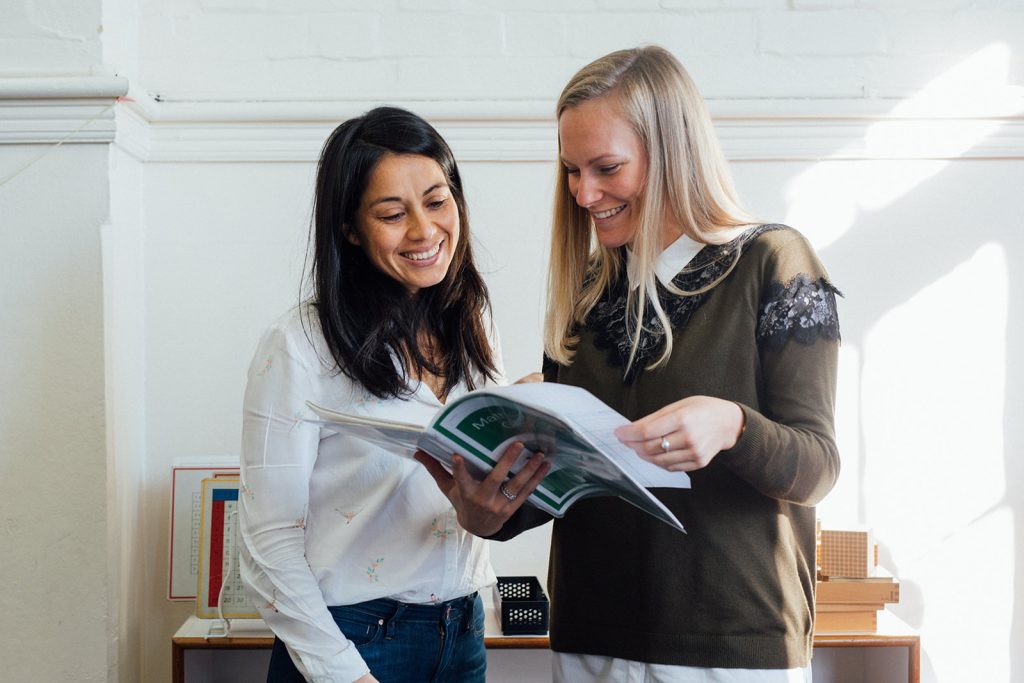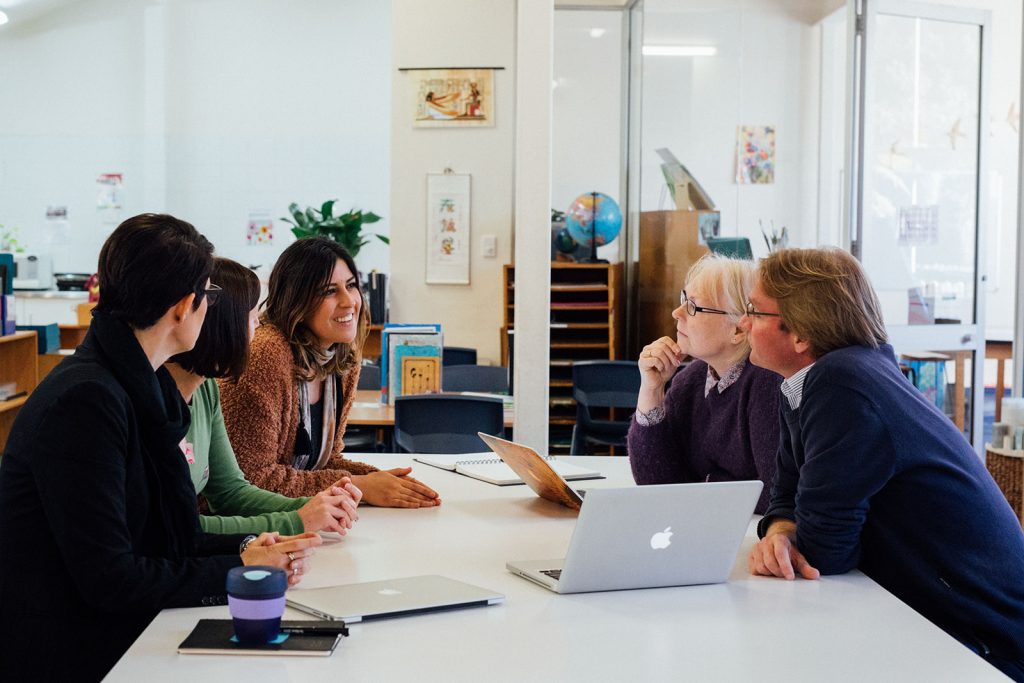PRIMARY SCHOOL
Primary School
The education of the Primary Montessori child is divided into two stages. The first of these is for children aged 6-9 (Years 1 – 3) and the second for children aged 9-12 (Years 4 – 6). At ISMS we refer to these as Stage 2 and Stage 3.

STAGE 2 – 3
A fundamental component of the School’s delivery is to support parents and carers in understanding the application of Montessori at School and complementing the delivery outside of School. The social and emotional development of the children is given equal attention. This emphasis on the ‘whole’ child and his or her uniqueness is the essence of the Montessori education offered at ISMS and the support of this approach needs to extend to all aspects of the child’s life.
“We must let the child walk and notice how he walks. His legs are short in comparison to ours and therefore he walks more slowly. Not only this, but the child explores the environment. ”
Maria Montessori

Stage-based Approach
Children embrace multi-sensory learning and passionate inquiry within the community of a multi-age classroom – designed to create natural opportunities for independence, citizenship, leadership and accountability.
Our Primary stage-based classes enable greater flexibility in learning, allowing us to group students of similar ability together, for more focused learning. Differentiated grouping includes mixed ability, streaming, gender based, year group and friendship, encourages high levels of engagement and motivation as well as providing opportunities for extra support, or extension and challenge.
The philosophy underpinning the combining of year groups is based on Dr. Maria Montessori’s scientific understanding of child development.
She believed that children aged 6-12 shared many characteristics which should be catered for and reflected in their learning environment. When the child moves into 6-9 and then into 9-12 they are able to see the way the older children work and what type of work they are doing. This inspires them to strive to reach new goals. It also allows the older students to act as role models for the younger students in their behaviour, work ethic and depth of work

How is Montessori different from other primary schools?
Learning is not considered competitive but a collaborative and exciting endeavour. The children do not strive to do better than the person next to them – but rather to achieve their personal best. They develop a sense of self and understand their important place in the world.
Children embrace multi-sensory learning and passionate inquiry within the community of a multi-age classroom – designed to create natural opportunities for independence, citizenship, and accountability.
Individual students follow their curiosity at their own pace, taking the time they need to understand each concept and meet individualised learning goals fully.
By being given the freedom and support to question, probe deeply, and make connections, Montessori students grow to be confident, enthusiastic, and self-directed learners and citizens, accountable to themselves and their community. They think critically, work collaboratively, and act boldly and with integrity developing a love of learning that extends well beyond the classroom and lasts a lifetime.
“We love this school, and the warm supportive environment which nurtures our girls and focuses on building good humans who care about others and their environment. The teachers are absolutely brilliant, so dedicated and thoughtful about their work and really devoted to the children”
Laura Duesbury

What is the Montessori Curriculum?
The Montessori National Curriculum integrates all subjects and concepts taught within the Montessori National Curriculum, the Early Years Learning Framework and the Australian National Curriculum.
The Montessori curriculum is organized as an inclined spiral plane of integrated studies rather than a traditional model where the curriculum is compartmentalised into separate subjects, with given topics considered only once at a given grade level.
The spiral plane refers to the idea that the curriculum spirals over three-year cycles, covering the subject areas of math and geometry, culture (socials and science), language, physical education, fine arts and social/emotional responsibility. With each three-year cycle, the subject matter is refined into a more sophisticated level of discovery.
For more information on the spiral plane of development, click here.

What are our goals for the Primary Years?
- Prepare students for high school and for the world beyond the classroom;
- To give students the freedom and support to develop as unique and productive individuals who develop a sense of self;
- To allow students to acknowledge their strengths and to build on areas that require further development.
- To be active and contributing members of their close and broader community.
All of our graduating students are considered leaders in our School. The School provides numerous leadership opportunities to nurture our students’ desire to inspire their younger peers in all aspects of community and life.
We have strong partnerships with the high schools in which our students continue their education and work hand-in-hand in ensuring a smooth transition to their next educational journey.

What is your educational support and gifted and talented programs?
ISMS has a distinct approach for identifying students with learning needs and implementing early intervention strategies in close collaboration with parents.
We have an extensive team of learning support teachers who are there to support your child through their educational journey.



